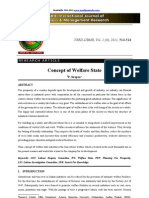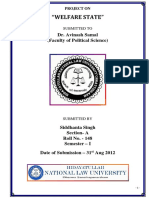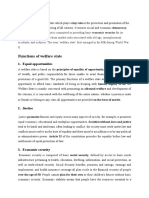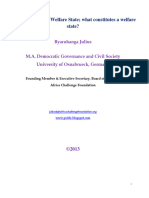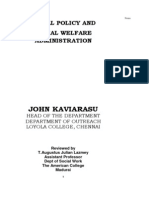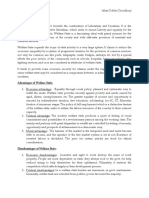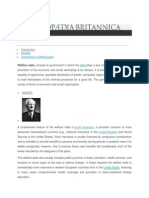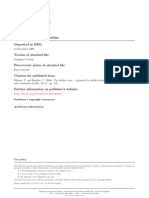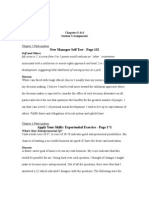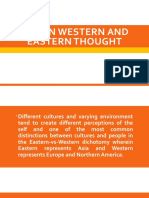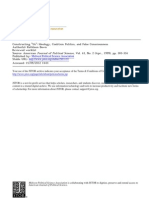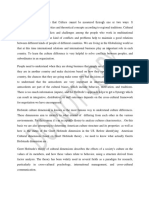0% found this document useful (0 votes)
14 views9 pagesW3L5 Script
The document discusses the concept of a 'Public Welfare State', emphasizing its historical roots and the belief that the state should prioritize the welfare of its citizens. It outlines the characteristics and functions of a welfare state, including public welfare, economic and social security, and democratic governance, while also addressing criticisms such as vagueness, potential authoritarianism, and inefficiencies in public services. Overall, it argues that a welfare state aims to fulfill the needs of all individuals for a good life and moral development.
Uploaded by
girotravinayCopyright
© © All Rights Reserved
We take content rights seriously. If you suspect this is your content, claim it here.
Available Formats
Download as PDF, TXT or read online on Scribd
0% found this document useful (0 votes)
14 views9 pagesW3L5 Script
The document discusses the concept of a 'Public Welfare State', emphasizing its historical roots and the belief that the state should prioritize the welfare of its citizens. It outlines the characteristics and functions of a welfare state, including public welfare, economic and social security, and democratic governance, while also addressing criticisms such as vagueness, potential authoritarianism, and inefficiencies in public services. Overall, it argues that a welfare state aims to fulfill the needs of all individuals for a good life and moral development.
Uploaded by
girotravinayCopyright
© © All Rights Reserved
We take content rights seriously. If you suspect this is your content, claim it here.
Available Formats
Download as PDF, TXT or read online on Scribd
/ 9







